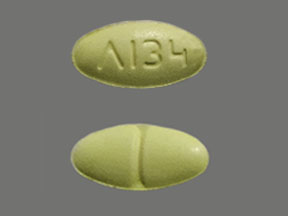
Maxzide-25 Coupons & Savings Card – Discount Prices from $6.60
Brand for: Triamterene-hydrochlorothiazide
My prescription
Edit
37.5-25MG, Triamterene-hydrochlorothiazide (30 Tablets)
Select pharmacy

CVS
$19.17
COUPON PRICE
Walgreens
$6.60
COUPON PRICE
Albertsons
$6.66
COUPON PRICE
Walmart
$13.02
COUPON PRICEMaxzide-25 savings card
Show this card to your pharmacist
Walgreens
$6.60
BIN
ID
PCN
GRP
015995
LHKPX308424
GDC
DR33
Powered by
More prescriptions for hypertension
More prescriptions for hypertension
Price history for Maxzide-25 (brand) & Triamterene-hydrochlorothiazide (generic)
30 Tablets, 37.5-25MG
Average retail price for Maxzide-25
Average retail price for Triamterene-hydrochlorothiazide
Average SaveHealth price for Triamterene-hydrochlorothiazide
Our price history data is based on aggregated prescription data collected from participating pharmacies in America. Our prescription data updates daily to reflect the latest price changes. If you notice a missing data point, it means there wasn't sufficient data available to generate a monetary value for that date.
Over the last 12 months, the average discount price of Maxzide-25 is $10.67 using the SaveHealth savings card. That's an average savings of 84.50% on Maxzide-25 with our discount card.
*Retail prices are based on pharmacy claims data, and may not be accurate when we don't have enough claims.
Maxzide-25 (Triamterene-hydrochlorothiazide) dosage forms
Dosage Quantity Price from Per unit 37.5-25MG 30 Tablets $11.41 $0.38 37.5-25MG 45 Tablets $12.61 $0.28 37.5-25MG 60 Tablets $13.81 $0.23 37.5-25MG 90 Tablets $23.71 $0.26 37.5-25MG 180 Tablets $31.52 $0.17
| Dosage | Quantity | Price from | Per unit |
|---|---|---|---|
| 37.5-25MG | 30 Tablets | $11.41 | $0.38 |
| 37.5-25MG | 45 Tablets | $12.61 | $0.28 |
| 37.5-25MG | 60 Tablets | $13.81 | $0.23 |
| 37.5-25MG | 90 Tablets | $23.71 | $0.26 |
| 37.5-25MG | 180 Tablets | $31.52 | $0.17 |
What foods to avoid when taking triamterene hctz 37.5-25 mg?
When taking triamterene with hydrochlorothiazide, it is advisable to avoid foods high in potassium. This includes bananas, oranges, potatoes, and spinach, as the medication can increase potassium levels in the body. Additionally, it is recommended to limit salt substitutes that contain potassium. Always consult with a healthcare provider for personalized dietary advice.
Does Maxzide cause weight gain?
Maxzide, a combination of triamterene and hydrochlorothiazide, is not commonly associated with weight gain. In fact, it is a diuretic, which typically helps reduce fluid retention and may lead to weight loss. However, individual reactions to medications can vary, and if there are concerns about weight changes, it is advisable to consult a healthcare provider.
Is Maxzide a good diuretic?
Maxzide is a combination diuretic medication that includes triamterene and hydrochlorothiazide. It is commonly used to treat high blood pressure and edema by helping the body eliminate excess fluid. Its effectiveness as a diuretic can vary depending on the individual's specific medical condition and response to the medication. It is important for patients to consult with their healthcare provider to determine if Maxzide is appropriate for their needs.
What precautions should be taken when taking triamterene hctz?
When taking triamterene HCTZ, several precautions should be considered:1. Allergies: Ensure there are no known allergies to triamterene, hydrochlorothiazide, or sulfa drugs.2. Medical History: Inform the healthcare provider of any history of kidney disease, liver disease, diabetes, gout, or electrolyte imbalances.3. Potassium Levels: Monitor potassium levels regularly, as triamterene can increase potassium, potentially leading to hyperkalemia.4. Hydration: Maintain adequate hydration, but avoid excessive intake of potassium-rich foods or supplements unless advised by a healthcare provider.5. Sun Sensitivity: Use sunscreen and protective clothing, as the medication can increase sensitivity to sunlight.6. Pregnancy and Breastfeeding: Discuss with a healthcare provider if pregnant, planning to become pregnant, or breastfeeding.7. Drug Interactions: Review all current medications with a healthcare provider to avoid potential interactions, especially with other diuretics, blood pressure medications, or NSAIDs.8. Regular Monitoring: Regularly monitor blood pressure, kidney function, and electrolyte levels as advised by a healthcare provider.9. Dizziness: Be cautious when standing up quickly, as the medication can cause dizziness or lightheadedness.10. Alcohol: Limit alcohol consumption, as it can exacerbate side effects like dizziness.These precautions help ensure the safe and effective use of triamterene HCTZ.
What is the most common use of Maxzide?
Maxzide is most commonly used to treat high blood pressure (hypertension) and to reduce fluid retention (edema) in patients with conditions such as congestive heart failure or kidney disorders.
